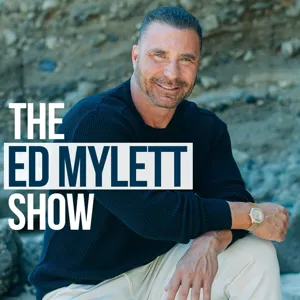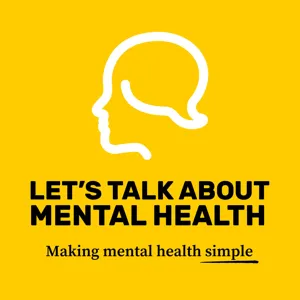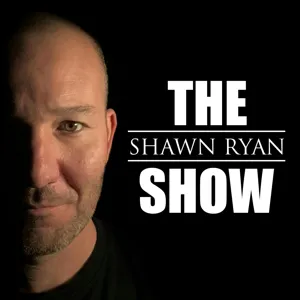Podcast Summary
Exploring Self-Understanding and Simplifying Complex Concepts: Understanding ourselves better through introspection and external means can lead to personal and professional growth. Simplifying complex concepts with tools like Mercury and Wise can save time and reduce stress.
Simplifying complex concepts and understanding ourselves better, whether through introspection or external means, can significantly improve our personal and professional lives. Mercury and Wise offer solutions to simplify financial operations and international money transfers, while self-knowledge is a lifelong journey that can bring clarity and growth. Introspection is valuable but limited, and seeking extra perspectives can provide a more comprehensive understanding of ourselves. Personality descriptors, such as zodiac signs and attachment styles, offer a shorthand for understanding others, but they don't tell the whole story. Ultimately, the quest for self-knowledge is a valuable and ongoing process that can lead to greater personal fulfillment and connection with others.
Moments of introspection can lead to valuable insights and growth: Exploring personalities and gaining self-understanding through introspection can lead to growth and valuable insights, but it requires a willingness to face difficult truths and seek honest feedback.
People are often motivated to explore their personalities and gain self-understanding as a response to puzzling experiences or crises in their lives. These moments of introspection can lead to valuable insights and growth, but they require a willingness to face difficult truths and seek honest feedback from trusted sources. The recent trend towards personality assessments may be a reflection of the pandemic's impact on people's lives, prompting many to engage in self-examination and reevaluate their priorities. Ultimately, the pursuit of self-knowledge is an ongoing process that involves hard work and a commitment to personal growth. It cannot be fully captured by a test or assessment, but rather requires a deep and honest engagement with oneself and one's experiences.
The Value of Self-Knowledge: Self-knowledge is valuable for making decisions and adapting to life's challenges. It's an ongoing process that helps us live more robustly.
Understanding ourselves and having self-knowledge is valuable for making decisions about how to spend our time and navigating life's challenges. While it's possible to live a satisfying life without engaging in self-examination, it can be risky and may hinder our ability to adapt when circumstances change. Self-knowledge is like an insurance policy against difficulties, helping us reassess our priorities and values when needed. Epistemology, the study of knowledge, now includes understanding, and self-knowledge can be seen as knowing not just facts, but also ourselves. It's an ongoing process that can help us live more robustly in the face of life's uncertainties.
Understanding the difference between self-knowledge and self-understanding: Self-understanding offers a more holistic and interconnected understanding of oneself, going beyond mere facts (self-knowledge) about oneself, particularly in social situations.
Self-knowledge and self-understanding are two distinct concepts. Self-knowledge refers to having facts about oneself, while self-understanding involves comprehending the interconnected patterns of one's behavior. The ancient Greek philosopher Socrates laid the foundation for modern self-discovery, emphasizing the importance of understanding oneself holistically. Meteorology serves as an analogy: while one can know specific weather facts (self-knowledge), understanding the complex relationships between different atmospheric phenomena (self-understanding) provides a more comprehensive perspective. Similarly, self-understanding allows us to appreciate how various aspects of ourselves interact, particularly in social situations. For instance, understanding one's behavior in relationships can lead to self-understanding and contribute to a happier life. In summary, self-understanding goes beyond self-knowledge by offering a more holistic and interconnected understanding of oneself.
The importance of self-reflection and self-knowledge in the face of adversity: Socrates' emphasis on questioning and examining one's own life and beliefs, even in the face of death, continues to inspire us to reflect on our own lives and seek self-knowledge as a crucial component of living a fulfilling existence.
Learning from the discussion about Socrates is that he saw the importance of self-reflection and self-knowledge, even in the face of death. Despite being accused of corrupting the youth and being sentenced to death, Socrates continued to emphasize the value of questioning and examining one's own life and beliefs. His famous injunction to "know thyself" has resonated throughout history and remains a cultural touchstone. The value of self-knowledge is still seen as crucial to living a fulfilling life, and the absence of it is often seen as leading to confusion and harm. Socrates' legacy continues to inspire us to reflect on our own lives and the important questions that need answering to live a flourishing existence.
Quick fixes for self-understanding fall short: True self-understanding is a lifelong process, requiring dedication and hard work beyond personality assessments and self-help quizzes.
While personality assessments and quick self-help quizzes can provide some insight, they do not offer a comprehensive or lasting solution to achieving self-knowledge or self-understanding. The desire for a quick fix is understandable, but the hard work required for valuable and lasting self-improvement is often underestimated. The importance of understanding the reasons behind our personality traits and behaviors cannot be overstated, as it is this understanding that drives progress and growth. Throughout history, people have found ways to know themselves without relying on modern assessments. Having a narrative about oneself, whether it's based on childhood experiences or ancient practices, can provide valuable guidance. However, it's essential to remember that true self-understanding is likely a lifelong process. It's important to approach self-improvement with a commitment to the hard work and dedication it requires, rather than relying solely on quick fixes.
Understanding the power of narratives in personal growth: Though narratives can offer wisdom and insights, it's crucial to remain open to new experiences and perspectives to promote personal growth.
While astrology may not have scientific credentials, it can provide emotional satisfaction and help people make sense of their lives. Self-knowledge, whether consciously pursued or not, has been a human endeavor for thousands of years. Stories, whether historical or mythological, can offer wisdom and insights for personal growth. However, relying too heavily on self-narratives can be limiting and may hinder personal growth. The concept of bad faith, as proposed by existentialist philosophy, warns against overidentifying with our self-narratives and encourages us to embrace uncertainty and explore new possibilities. Thus, while narratives can be helpful, it's essential to remain open to new experiences and perspectives.
Understanding Bad Faith: The Stories We Tell Ourselves: Recognize that parts of ourselves are 'made' and open to change, challenging ourselves to grow beyond limiting beliefs and justifications.
We all have a tendency to tell ourselves stories that justify our actions, even if they're not the most desirable or valuable. This concept is known as "bad faith." For example, when we say we can't do something anymore, we might be exercising bad faith if we're really just deciding not to do it. Similarly, when we identify strongly with labels like astrological signs or astrological attachment styles, we risk slipping into bad faith by assuming these traits are entirely objective and unchangeable. In reality, our selves are a complex mixture of what we find and what we make. While some aspects of our identity may be inherent, others are shaped by our choices and actions. By acknowledging that the parts of ourselves that are "made" are also subject to change, we open up opportunities for growth. However, it can be uncomfortable to hear an honest assessment of ourselves, and we may be tempted to cling to labels or justifications. But by asking ourselves whether our actions and beliefs are truly reflective of who we are, or simply a result of our choices, we can challenge ourselves to make positive changes and move forward.
Listening to Constructive Criticism: Allow initial defensiveness, but then reevaluate and consider criticism's validity for self-improvement
While it's natural for us to defend ourselves against criticism and preserve our self-esteem, it's important to try to listen and learn from constructive feedback. This is similar to our physiological immune system, which protects us from harm, but we also need to be open to criticism that can help us grow. Our tendency to spin information to make it look better for our self-esteem, or our "internal spin doctor," can sometimes prevent us from recognizing valuable feedback. Social psychologist Tim Wilson's concept of the psychological immune system suggests that we should allow ourselves to be initially defensive, but then reevaluate and consider the validity of the criticism. By doing so, we can improve ourselves and become better versions of ourselves.
The pursuit of self-understanding is a valuable endeavor but not a guaranteed path to happiness: Self-understanding is important, but it's not the only factor in achieving happiness. Honest criticism and valuing experiences and relationships are also crucial.
While seeking self-understanding and self-knowledge can be a valuable and laudable pursuit, it's important to remember that it's not a guaranteed path to happiness. Society's emphasis on self-knowledge, especially in Western cultures, can be seen in various traditions, not just in the West. However, the resources and opportunities to pursue self-understanding are more readily available in wealthy societies like America. The point was made that criticism, both personal and professional, should be more direct and honest, but acknowledging the need for nuance in delivering it based on the audience. The discussion also touched on the societal trend of moving away from materialism as a means to happiness and towards appreciating experiences and relationships, which can be facilitated by self-understanding. Overall, the pursuit of self-understanding is a worthwhile endeavor, but it's essential to keep in mind that it's only one component of a happy life.
The Limits of Personality Assessments: While personality assessments can offer insights, they should not be solely relied upon for self-understanding. True self-knowledge requires effort and a willingness to face criticism.
While personality assessments like Myers Briggs can provide useful insights, they should not be relied upon too heavily as they are influenced by both objective facts and personal choices. The American emphasis on efficiency and quick fixes can lead us to overemphasize these assessments, but true self-knowledge and understanding, though not easy to attain, is worth the effort. Philosophers argue that the meaning of "really knowing ourselves" can vary, and while complete and perfect self-knowledge may be an ideal, substantial self-knowledge is attainable through hard work and willingness to face criticism. The importance of language and its nuances, even in common words like "really," should not be overlooked. Ultimately, the quest to know ourselves is ongoing and requires a commitment to self-reflection and growth.
Discussing various topics and encouraging listener engagement: Listeners are encouraged to share their thoughts by emailing us and engage on social media platforms. Appreciation for continued support and podcast journey together.
Alex Overington composed the theme music for this podcast, and A.M. Hall is the boss. During this episode, various topics were discussed, and we encourage you to share your thoughts by emailing us at thegrayarea@box.com. If you enjoyed this episode, please share the link on your social media platforms. You can find me, Ali Volpi, on Twitter, and don't forget that my Twitter handle has two 'e's. Sean Illing will be back with a new episode next Monday. So, in essence, we appreciate your engagement, and we look forward to continuing this podcast journey together.






